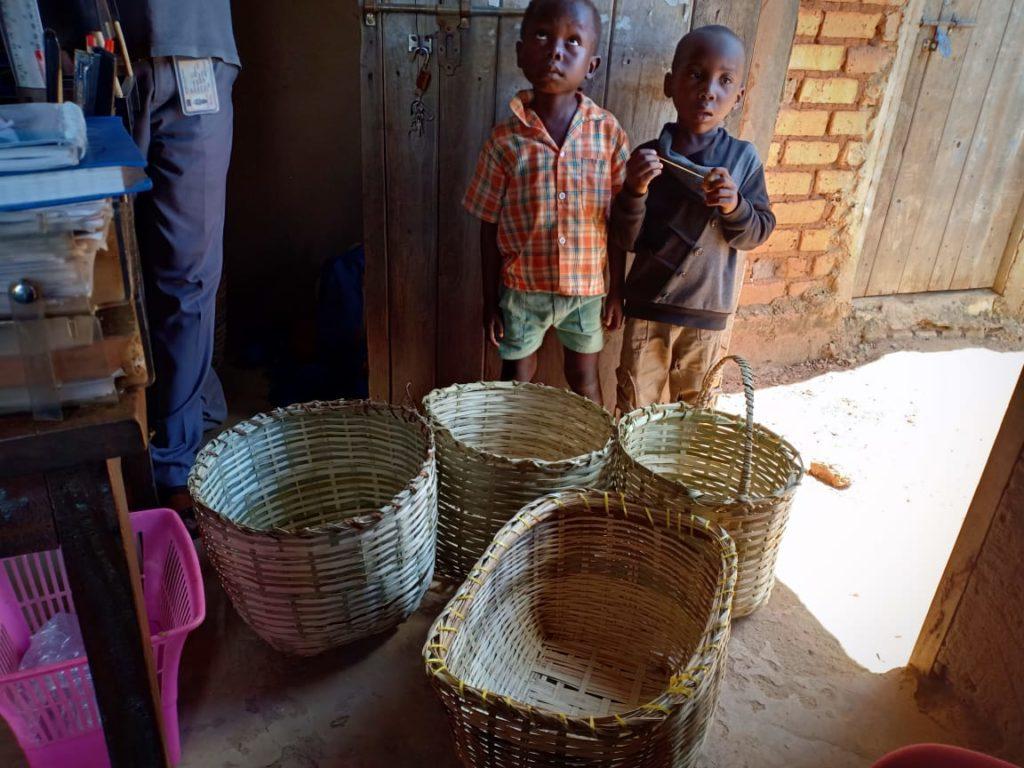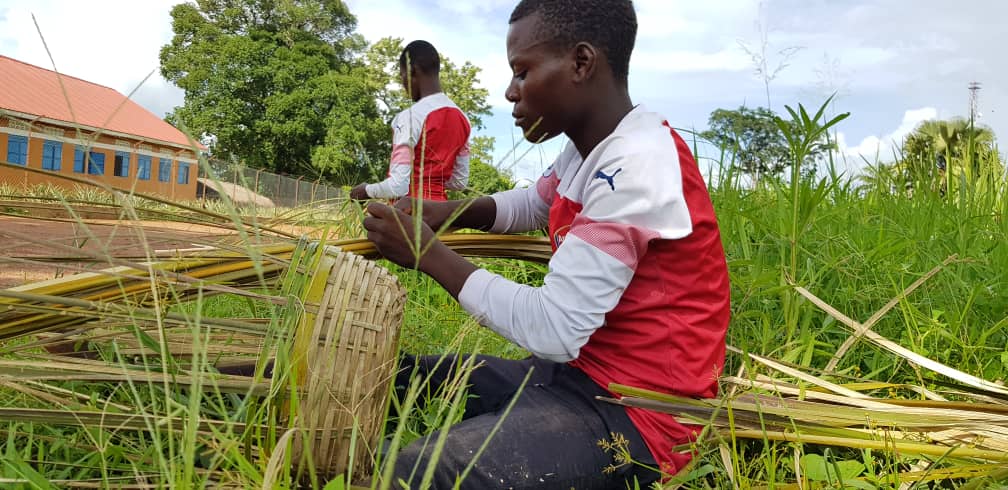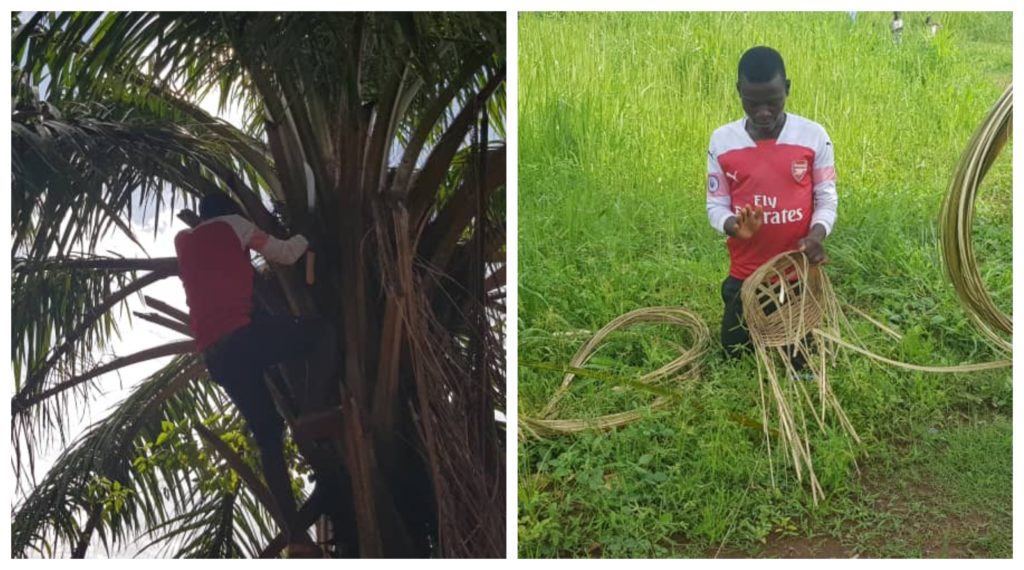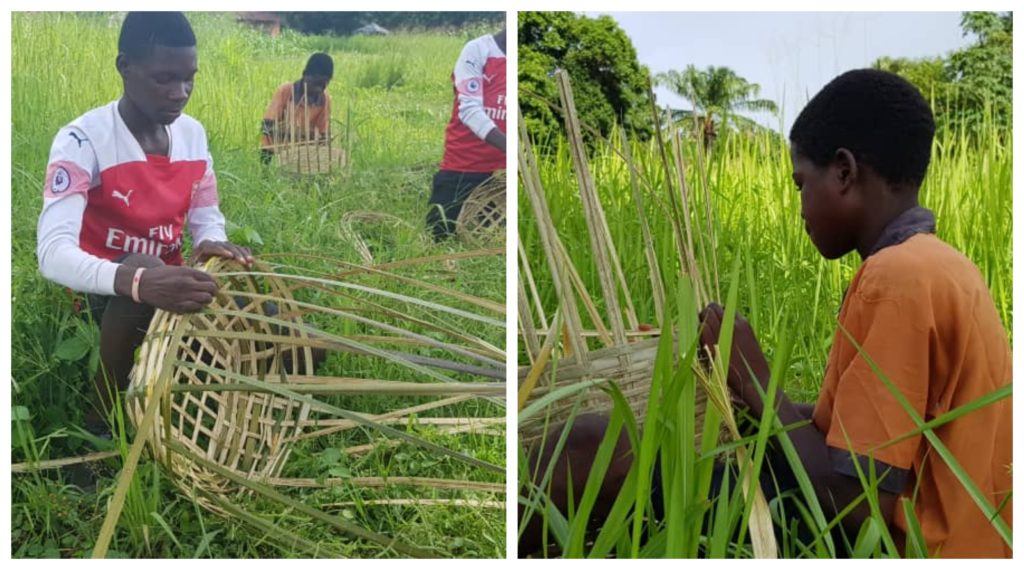Weaving A Better Future For Youth in South Sudan
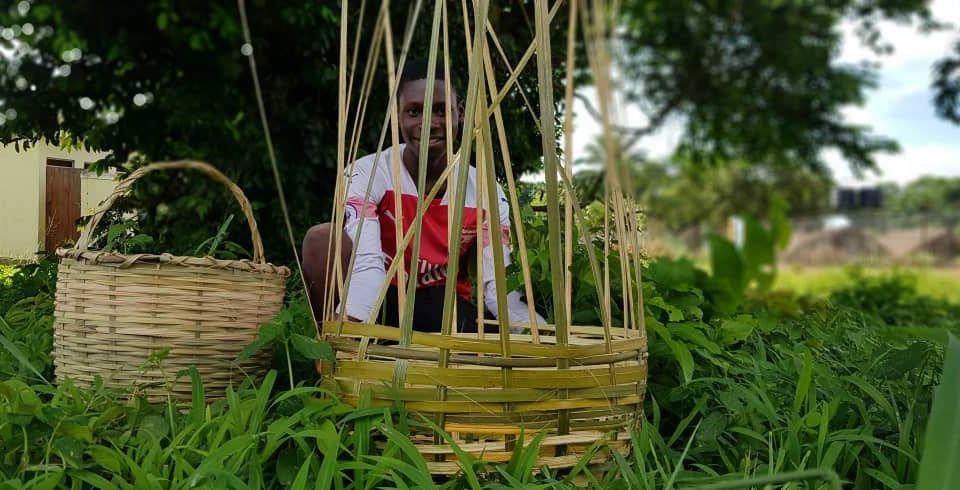
International Youth Day, is a universal celebration of the role young women and men have as change makers. It is also an opportunity to raise awareness of the many challenges facing youth around the world. This year’s theme: Transforming Education.
For children living in South Sudan, life is difficult. Most are unable to attend school due to both economic hardship and the country’s shattered education system, and most children know all too well what it is like to watch those around them suffer — from hunger, from lack of healthcare, and from violence. This is due to years of civil war. For too many children, war is all they’ve ever known.
And yet despite this, the children of South Sudan do not surrender to their circumstances. Instead, time and time again, they demonstrate resilience and desire to better themselves, their families, and their communities. Fred Mangi is a key member of our team in South Sudan. He recently shared the story about a group of kids (many former child soldiers) who are trying to make life a little bit easier for themselves and their families. To celebrate the strength, dedication, and resilience of South Sudan’s youth, we share his story with you today.
A Brighter Future For South Sudan
Young adults in South Sudan are weaving a brighter future for themselves through the art of basket weaving! Using 100% local materials (primarily palm or coconut trees), youth have learned how to create durable baskets, which they either use for storage or sell to earn income to help their families.
As an individual working in child protection, I was amazed not only by the initiative the young community members took to learn something new that could help their families, but also by the way they encouraged and taught others in their community to learn the skill. Rather than compete they aimed to share their learnings for the betterment of others.
Integrating Basket Weaving into Child Friendly Spaces
CMMB and other organizations working in the context of war, use Child Friendly Spaces as a tool to protect children, promote their psycho social well-being, and as a way to strengthen the community’s capacity to protect its youth.
Basket weaving is a part of the culture in South Sudan. Children who are able to attend school learn the art from their coursework, others learn from family or peers. At CFS, children are encouraged to learn the art as a way to instill culturally relevant life skills, store their play items, or sell as a source of income.
It is good to see children learn practical life skills. It reminds me of my own childhood, when I used to make and sell baskets to pay for my school fees. In part, basket weaving opened up the doors that allowed me to get where I am today and now, it continues to do the same for others.
Zoom In: Filbert’s Story (in his own words)
Filbert is a young boy who is part of the Nzara community. He too is using basket weaving to open up new doors for his future. After learning the skill from his father, Filbert continues to pass it on to other youth in his community.
My name is filbert and I am 16 years old. I’m the first born of three and I live with my family in Nzara, South Sudan.
I have been a local basket maker since I was nine years old. My father taught me the art before he passed away. My dad taught me the skills I have today.
Baskets are my family’s source of income and they are in highest demand during harvest season because traditionally, the baskets are used to store agriculture products like groundnuts, cassava floor, maize and other items.
The price of the baskets vary and is dependent on size. For instance, the largest basket I sell is worth 200 South Sudanese pounds, that’s $1.25 in U.S. dollars.
Learning the art from my father was the greatest gift, and I will always remember him for what he taught me. Because of my ability to make baskets, I am able to sell them and provide for my two sisters and mother. I have even have been able to save some of my earnings to keep myself in school and to pay for healthcare when me or my family get sick.
This trade has helped my family and I so much want that I encourage other young boys and girls like me to learn how to make baskets, or learn any creative skill that might help support their families when their parents are no longer able to.
